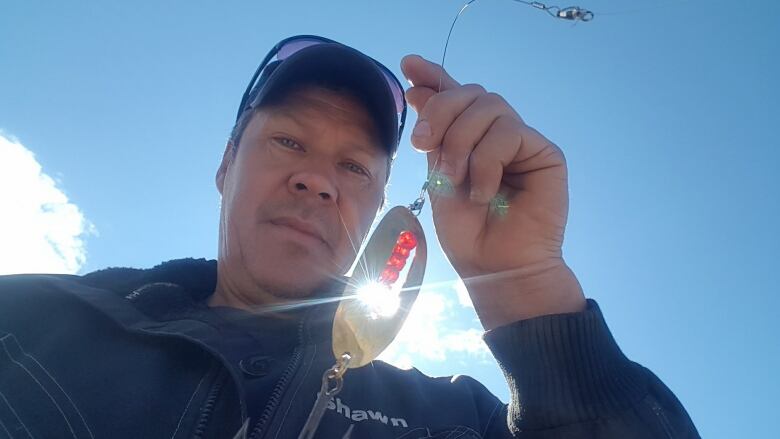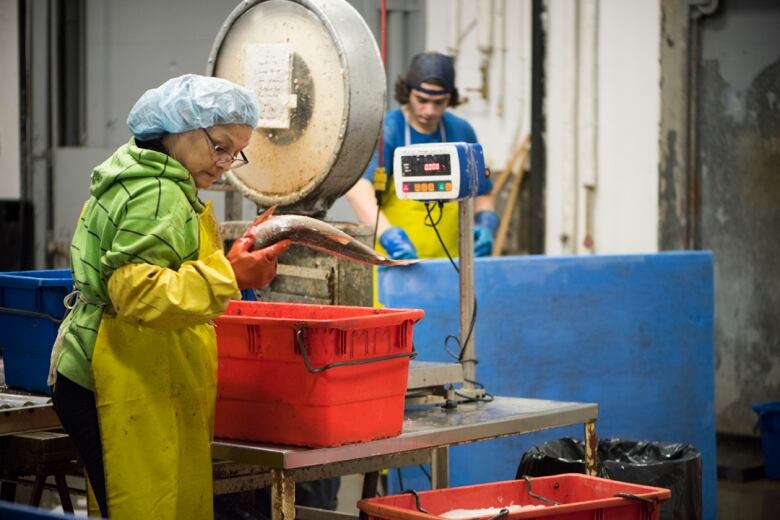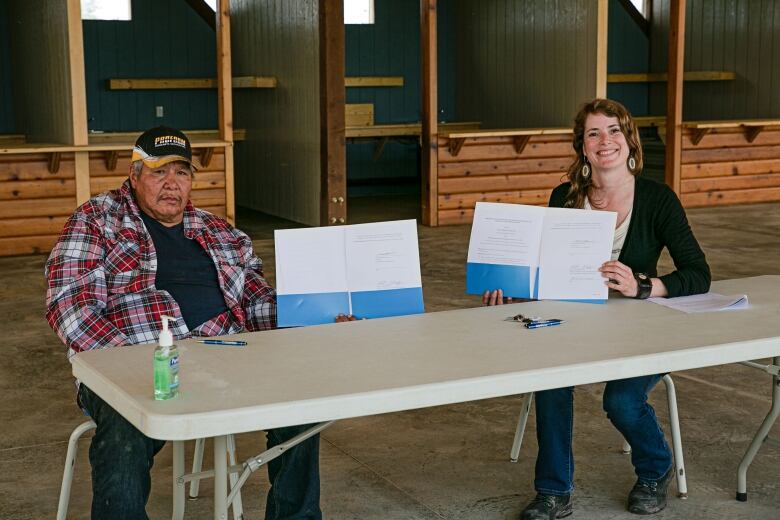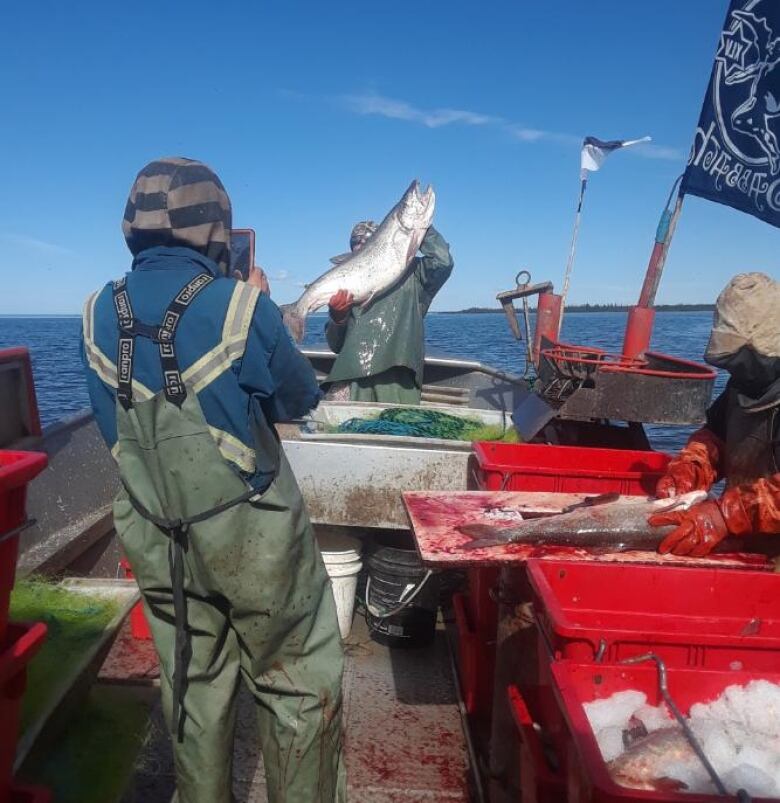N.W.T. wants to transform its commercial fishing industry. It needs the fishers first
Territorial gov't seeking marketing strategy to sell N.W.T. fish to the rest of Canada

The Northwest Territories wants help on how to sell fish from Great Slave Lake to the rest of Canada.
This month, the territory's department of Industry, Tourism and Investment issued a request for proposals for a marketing strategy to "assist in the transformation of the Great Slave Lake commercial fishery to a market-driven fishery."
The transformation has been a slow one. A long-awaited fish processing plant in Hay River, N.W.T. is set to break ground this spring. It's expected to be completed by summer of 2022.
Once fully operational, the territory expects to more than double the annual amount of processed commercial fish from from 600,000to 1.5 million pounds.
There's just one problem getting the fish out of the water.

"The fish plant doesn't change anything. The fact is, there's the same amount of fish out on the lake with the same amount of people," says Shawn Buckley, a third-generation fisherman from Hay River.
Buckley is one of roughly 50 people directly employed in the Great Slave Lake commercial fishery, an industry valued at around $1 million a year according to figures provided by ITI.
Buckley says little has changed over the more than four decades he's been in the industry,including the price of fish.
"A lot of the fishermen are selling on the streets because basically you can't afford to commercial fish full-time," he said.
Buckley himself works in the tourism industry in-between seasons.He's sceptical a new plant will translate into higher prices.
"There's nothing guaranteed that prices are going to change," he said.
Trucking fish to Winnipeg
What will change, once the new fish plant is operational, is the distance the fish once caught haveto travel.
Currently, fishers are mandated to sell their catch to the Freshwater Fish Marketing Corporation, a Crown corporation based in Manitoba, which also controls the price.
Fish from Great Slave Lake are packed in Hay River then trucked down south to the corporation's Winnipeg facility where it's combined and processed with fish from Western provinces and sold for a set price.
Whitefish accounts for 60 per cent of the catch, trout makes up 30 per cent and the remainder come from pickerel, inconnu, northern pike and some other minor species.
Hay River's pending Canadian Food Industry Association-approvedprocessing facility will eliminate the need for the long-distance truck rides and more importantly, allow for the transition to a free market and let theTu'Cho Fishers Cooperativemarket N.W.T. fish as N.W.T. fish.
The co-op is a branch of the NWT Fishermen's Federation, operating out of Hay River.
"The intention of this change is to achieve higher prices and better access to Canadian export markets," according to ITI's request for proposal.

Cameron Beaverbones is optimistic the new plant will mean more money for fishers like him. He's the president of the Tu'cho' Fishers' Co-operative and went from working as a deck hand in his youth to owning his own fishing operation.
Beaverbones says he needs to catch about 25, 80-pound boxes of fish a day to break even once the season starts in mid-June.
"There's, I think, a few more younger ones starting to get into the fishing industry now," he said.
"Some of the younger boys from [Fort] Providence there work with some of the fishermen there.
"They'll be probably fishing on their own one day here too."

Marketing Great Slave Lake
The hope is there will be a new market for them to sell to.
"We need to look at finding new markets, not just N.W.T. because that's limited," says Joel Holder, the director of economic diversification for ITI.
"We're just scratching on the quota as it is now. So we think that we've got room to increase the quota and therefore satisfy a larger market."
The quota 3.46 million pounds is set by the federal Department of Fisheries and Oceans. The average harvest over the last five years has been just a fraction of that, between 500,000 and 800,000 pounds.
We have to start promoting this as being one of the last pristine, clean freshwater fish products in the world.- Shawn Buckley, N.W.T. fisherman
Holdersays the territory needs to get more people interested in fishing or help current fishers increase their catch.
He points to a pilot project this past winter that opened Hay River's current fish plant for about 10 weeks to try and revitalize the winter fishery. He also lists several programs the territory offers, including the Northern Food Development Program, which offers financial supports to fishers for purchasing equipment.
The challenge is getting the buy-in.
"The lake itself is a harsh environment. It's a short season. It'sa lifestyle that you need to love," Holdersaid.

Life of a fisher
Buckley knows it's not for everyone. That's why he says a lot of commercial fisherman are out on the street.
"It's a hard living to even try to find labourers to help you. And my personal opinion is, if you commercial fish, you don't have a family, [or] you might as well not have a family because you're going to be spending all your time commercial fishing at the price it is right now."
He says it's hard to explain why he keeps going.
"When you're a person from the land, most of us are Dene, Mtis, Aboriginal ... we grew up on the land. Even if we're going to be starving and not making a living we're going to still be on the land. We're going to go back fishing. It's all we know," he said.
When it comes to marketing N.W.T. fish, Buckley offers a few suggestions new people, new packaging and new wording.
"We have to start promoting this as being one of the last pristine, clean freshwater fish products in the world."












_(720p).jpg)


 OFFICIAL HD MUSIC VIDEO.jpg)
.jpg)



























































































